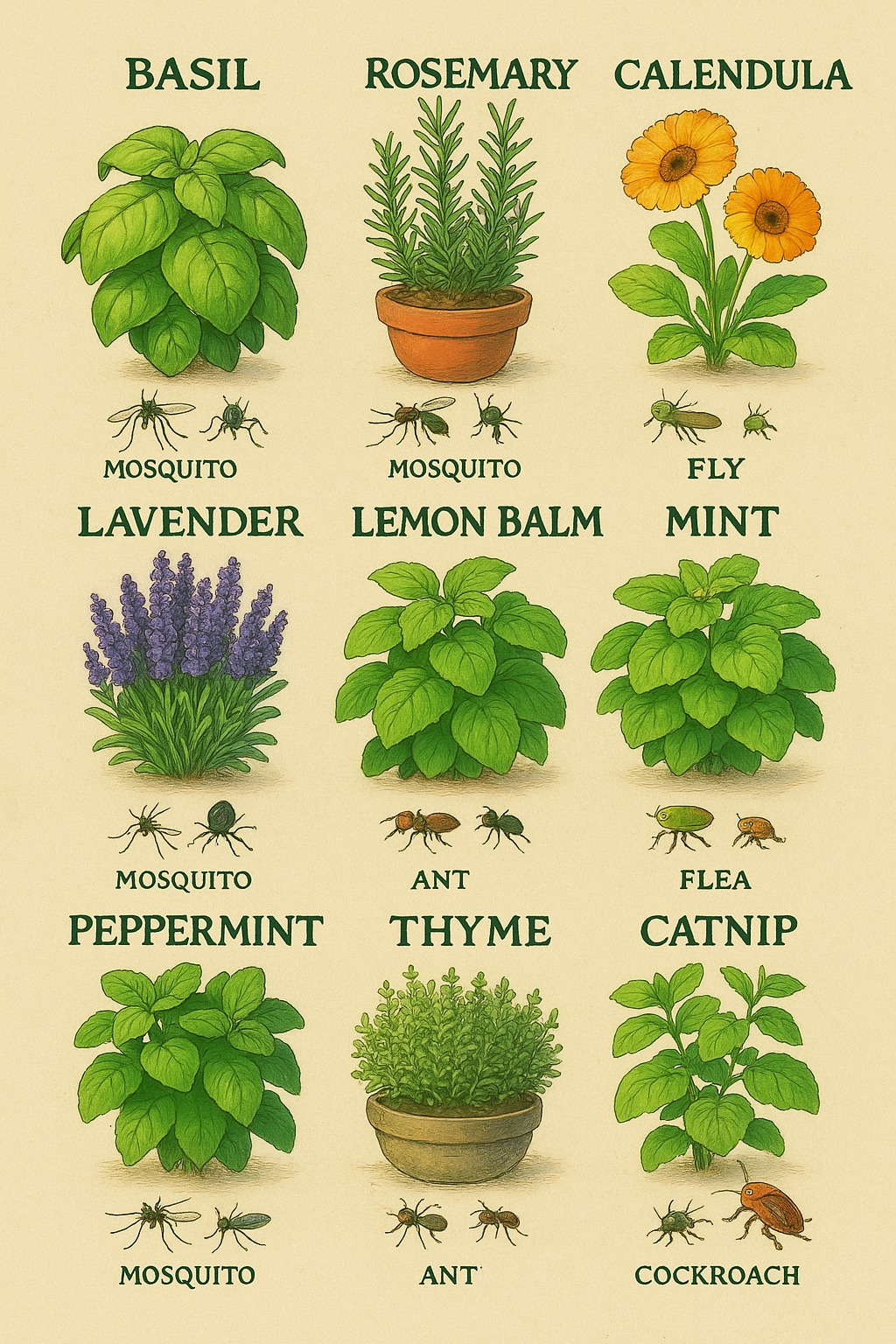Insects can be a nuisance in gardens, patios, and even indoors. While chemical repellents are widely available, many people prefer natural alternatives that are safer for the environment and your health. Fortunately, nature provides an array of herbs and plants that not only beautify your space but also act as natural insect repellents. Here’s a detailed guide to 14 herbs and plants that repel all types of insects, along with tips on how to use them effectively! 🌿✨
Why Use Plants as Insect Repellents?
Using plants to repel insects offers several benefits:
- Eco-Friendly: Plants are a natural and sustainable way to deter pests without harmful chemicals.
- Safe for Humans and Pets: Unlike chemical sprays, plants pose no risk to children or pets when used responsibly.
- Multifunctional: Many insect-repelling plants are also culinary herbs, decorative flowers, or medicinal remedies.
- Low Maintenance: Most of these plants are easy to grow and require minimal care.
1. Lavender (Lavandula)
Lavender’s soothing fragrance is loved by humans but detested by mosquitoes, moths, and flies.
Best Uses:
- Plant lavender around patios and doorways.
- Use dried lavender sachets indoors to repel moths in closets and drawers.
Growing Tips: Lavender thrives in full sun and well-draining soil.
2. Basil (Ocimum basilicum)
Basil is not only a kitchen staple but also a powerful mosquito repellent due to its pungent aroma.
Best Uses:
- Place potted basil plants on windowsills or outdoor dining areas.
- Crush a few leaves and rub them on your skin as a natural insect repellent.
Growing Tips: Basil requires consistent moisture and plenty of sunlight.
3. Mint (Mentha)
Mint’s strong scent deters ants, mosquitoes, and flies.
Best Uses:
- Grow mint in containers to prevent it from spreading uncontrollably.
- Use fresh mint leaves to create DIY insect-repellent sprays.
Growing Tips: Keep the soil moist and provide partial shade to full sun.
4. Rosemary (Rosmarinus officinalis)
Rosemary’s woody scent repels mosquitoes, cabbage moths, and carrot flies.
Best Uses:
- Add rosemary to outdoor fire pits to create a smoke that drives away insects.
- Keep potted rosemary near outdoor seating areas.
Growing Tips: Rosemary prefers well-drained soil and full sun.
